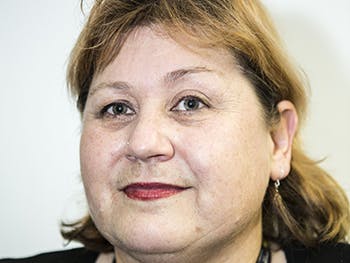UNIVERSITY NEWS LAST UPDATED : 03 SEPTEMBER 2020

A mental health expert has shared her advice and guidance for parents, children and teenagers anxious about the return to school amidst widespread concern around Covid-19.
Kim Moore, senior lecturer in mental health and disability at Birmingham City University, advises worried parents to talk with their children and teenagers about any fears they have about the new term to help with the post-holiday transition – and the inevitable range of emotions generated by the pandemic.
1. Parents – talk to children and teenagers, plan for a longer school run
Kim says, “Letting go can be hard and for the parents whose child may be attending school for the first time this has always been both a moment of joy and sadness to see your babies growing up. Covid-19 may add to your concerns and what we do need to remember is that our children pick up and reflect our emotions, so if you are anxious they may also be anxious.”
- Do have conversations about growing up and going to school
- Know that your anxiety is normal
“Be honest about Covid-19 with your children in an age-appropriate way.” Kim continues. “There are some very good resources available to help you with these conversations - Anna Freud Foundation or the Mental Health Foundation have accessible resources you might use. Parents whose children have already started primary school may be excited for them returning to socialise with their friends, but this may also cause some worries about Covid-19 risks. Remember that the schools and teachers have been working hard to manage and develop safe strategies to cope with these concerns.
2. Younger children – pay attention to experiences and successes
“All children are unique and their responses and reactions on going back to school can range from appearing as a sugar rush high of excitement to anxiety about meeting others, making new friends or being separated from their pre-Covid-19 friendship circles.
“It is important as parents that we catch up with the day they have experienced and help children to self-soothe these fears using a range of strategies including:”
- A daily news brief on their day and play presented by the child
- Positive re-enforcement of good days and personal growth
- Celebrating success no matter how small
- Remember that all new situations can make us feel stressed or anxious so this is a normal response and one that can fade with positive repetitions
3. Young adults – peer groups are essential, rebelling is natural, lead by example
“Children and young people in older age groups may have different concerns that relate to school work, catching up on learning or peer group pressures. With a more complex understanding of the situation, it is going to be important to keep up with daily checks on how the new term is going, not only for their learning but in how they are feeling.
“Older children and young people who have missed their social networks and peer groups may be nervously excited to see them again, and this may have a considerable impact on their behaviour. Talking and catching up may be the priority rather than the usual classroom learning and it may also be that peer groups may be separated by staggered attendances, so it is something to check on. Older children and young people are going to compare their experiences and peer pressure will play a role in settling back into friendship circles or back into the learning zone.
“As a parent, you may find that the excitement of being back at school with mates quickly evaporates as the new routines become old hat, so have regular conversations about school life and how we are all feeling is important to help develop problem-solving skills to manage all of these changes.
“There is also going to be a group of young adults who with their more advance knowledge believe that they are immune to Covid-19 and these rules are not needed so rebel against the system. Challenging the system is a normal part of growing up and there have always been young people who find it difficult to live within the rules.
“Any change needs to make sense and clear explanations of why these new rules are in place might need to be discussed more than once. It is important that parents and teachers use the same messages and model these behaviours themselves.”
Resources for young people, recommended by Kim Moore, senior lecturer in mental health and disability at Birmingham City University: